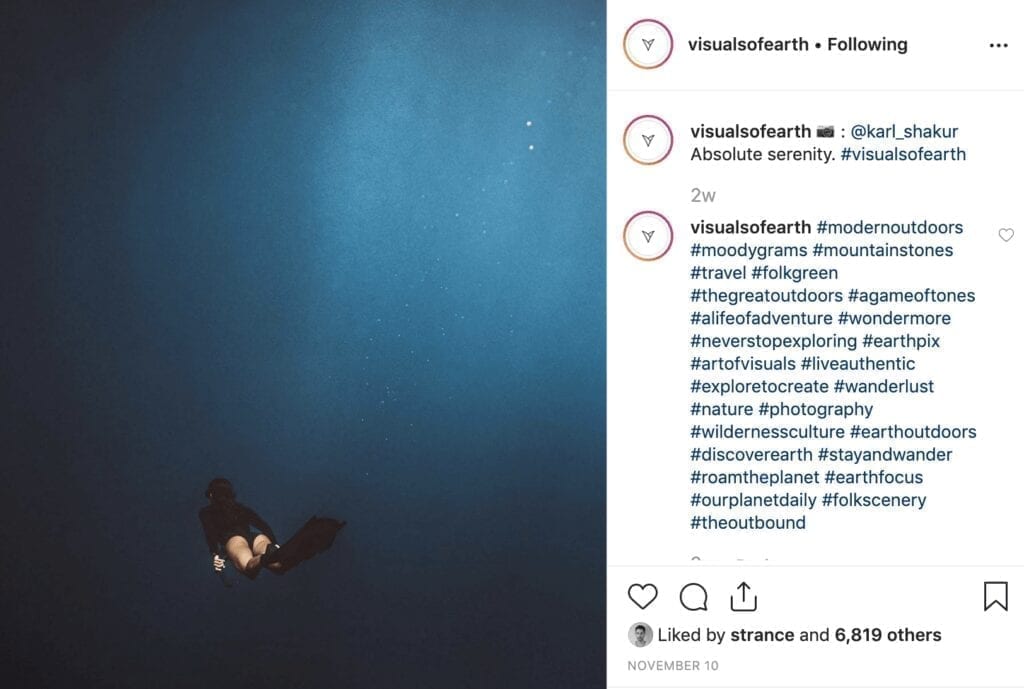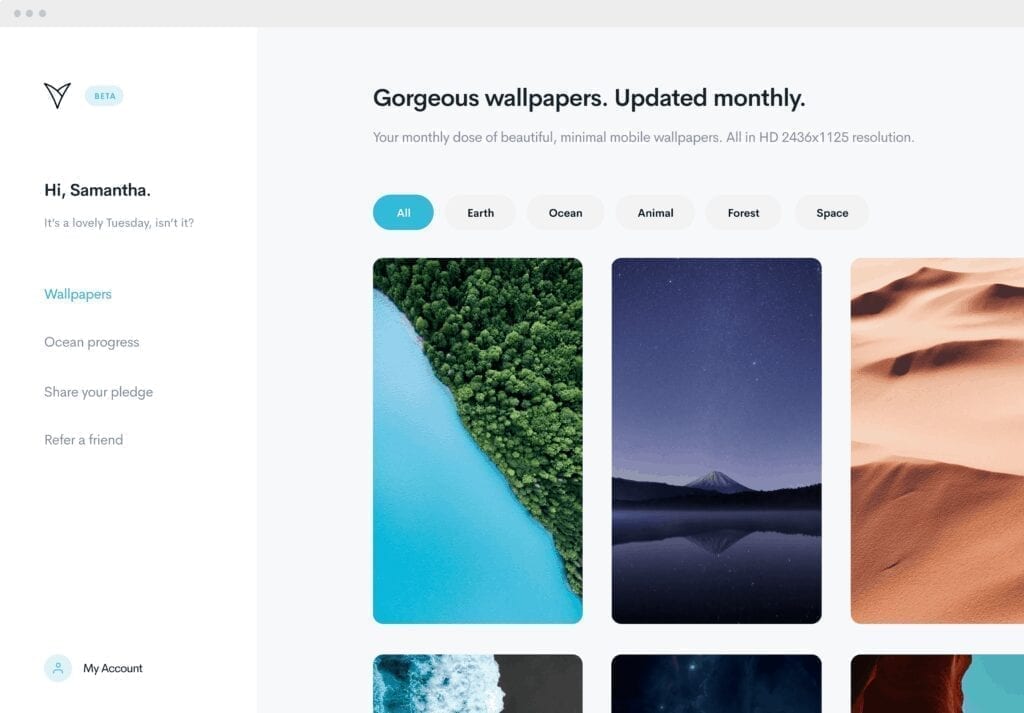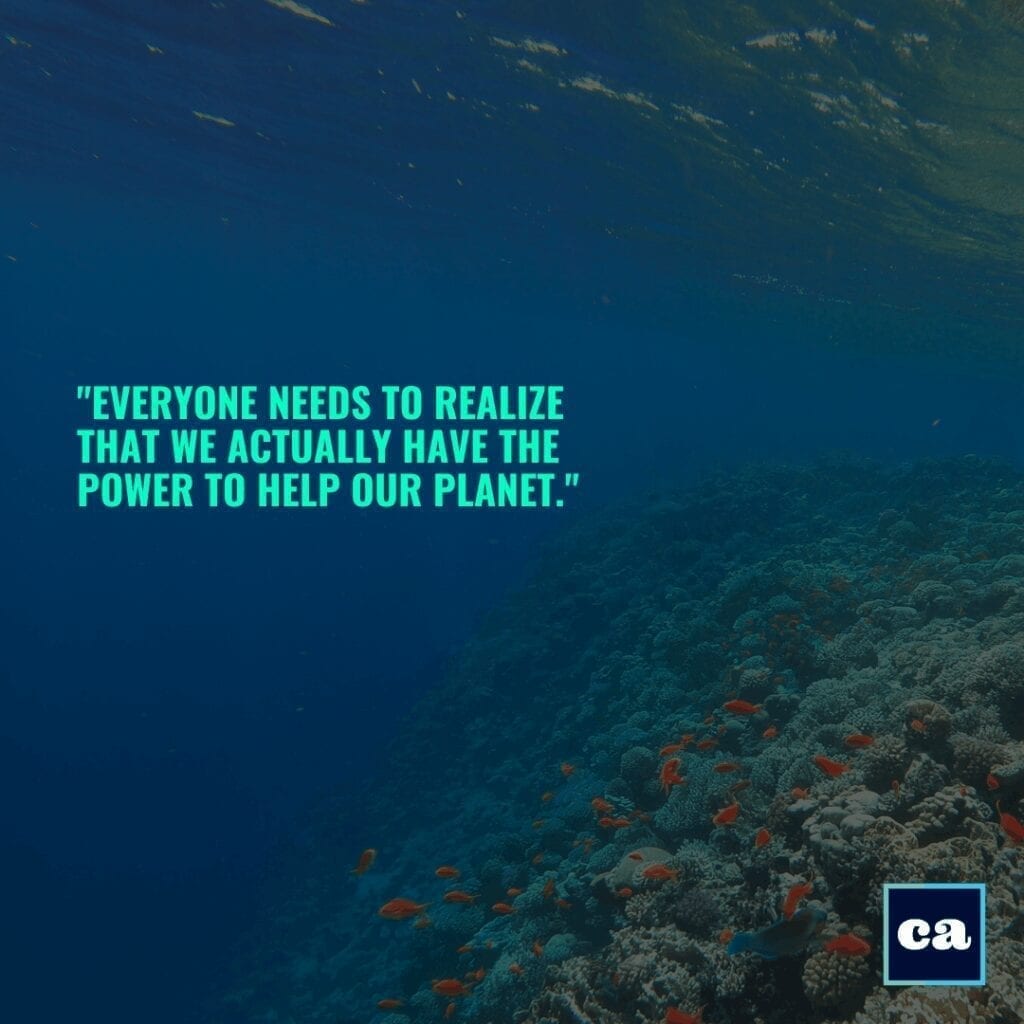Meet Vera, a new platform that allows members to easily offset their plastic footprint for as low as $6/month. Every year, an estimated 14 billion pounds of plastic and waste ends up in our oceans, by 2050, there will be more plastic than fish in our seas. We as consumers, entrepreneurs, and creatives, have the ability to combat this problem and use our consumer power and skills to make significant impact.
We can shop more consciously and sustainable, we can donate to environmental causes, and volunteer at eco organizations and events. Of course sometimes this can be a bit overwhelming on how to use your dollars to actually support the cause you care about. This is why, when I discovered Vera, I was immediately attracted to the idea of subscribing to make impact on a cause I truly cared about.
How it works is this. Vera creates an effortless way for you to offset your plastic footprint. By becoming a member, you’re supporting various initiatives who are hand-selected by the founders, who all have a proven track record of cleaning our oceans. Each of the organizations selected have very different methods for cleaning the oceans, so it helps maximize the platforms efforts by diversifying your contribution.
Below is a Q&A with the founders of Vera, on how it works and it’s mission to make saving our oceans as easy as buying a cup of coffee.
How did the idea of Vera come to be, what was the light bulb moment?
There were two light bulb moments. The first happened as our Instagram page @visualsofearth began to grow a large following. As our audience of photographers and nature enthusiasts began to grow, we felt we had a responsibility to bring awareness towards Earth’s major environmental issues. We just weren’t sure how to go about it at the time.

The second moment happened when Notre-Dame de Paris’ cathedral had burned down. There was a lot of controversy in how billions of dollars were raised to rebuild the cathedral, when that money could have been given to charities providing food and shelter to people in need.
Speaking of this controversy with a friend, he made me realize that people who donate money toward charities have absolutely no idea where it’s actually going, or if/how it’s even making a difference. As soon as you enter the amount you’re donating and hit that ‘donate’ button, the experience is over. A donation to the cathedral is different, because donors are literally able to see how their money is being invested as the bricks get rebuilt.
So I thought, how can we make the charity experience more transparent, rewarding and effective? That’s how we came up with Vera.
Can you explain how the platform works, when a person subscribes, what does that enact and what features are available for users?
The signup process is absolutely seamless. As soon as you sign up, you get redirected to your personalized dashboard where you can track & visualize the impact you’re making, and get access to a beautiful library of carefully-curated wallpapers. More perks like discounts from eco-friendly brands are also coming very soon.

What are some of the organization that the Vera platform supports and why these particular organizations?
Right now, we support Ocean Wise, Project Aware, and Ocean Conservancy. We’ve done a ton of research, and found that those three have been the most effective at cleaning our oceans. That said, this particular question is still being thought through. We’re still looking for organizations that are able to provide us with even more transparency. Implementing blockchain-based methods to help us with that is something that’s currently in the works.
In researching and educating yourself on our plastic and ocean dilemma what have you learned that is most important for all individuals to know?
Everyone needs to realize that we actually have the power to help our planet. The global crisis goes far beyond the plastic in our oceans, but if Earth’s ~7.7 billion inhabitants all make a small effort, the impact we can create is monumental.

With having a technology background, how do you think data and technology help us save our oceans and rid it of plastic waste?
Interesting question, because even though technology and autonomous manufacturing processes have created many of the problems we’re facing today, technology will also help us to solve them. Using technology and data to help make the charity process more transparent and effective will (hopefully) inspire a new generation of people to better understand the scale of the problem, and also give them better platforms to help us solve them.
Join the world’s most trusted place to buy and sell cryptocurrency.
Try Coinbase here. (affiliate link)
Listen to more Causeartist podcasts here.
Latest Post:
- What are Plant Based Fibers
- 7 Sustainable and Eco Friendly Floss Options
- Anshul Magotra: How Social Innovation Circle Supports Impact Entrepreneurs
- Causeartist Brief – U.S. Department of Energy x Google, Bezos Centers for Sustainable Protein, Oregon Biochar Solutions
- Evidencity: Pioneering the Fight Against Modern Slavery Through Tech








